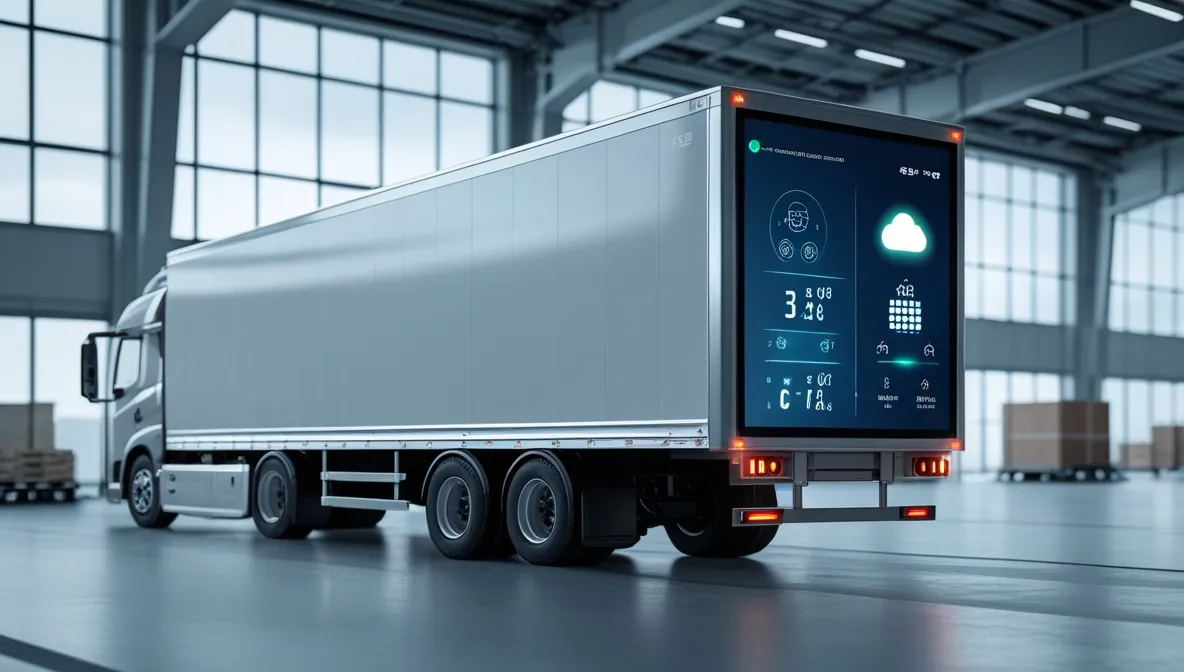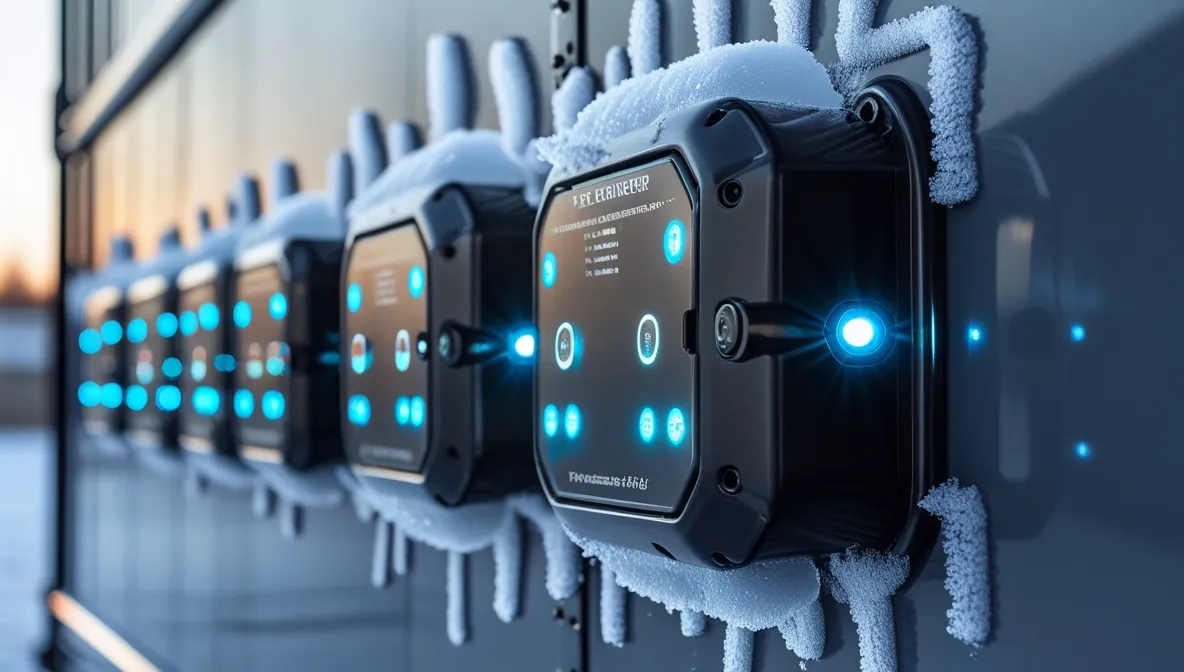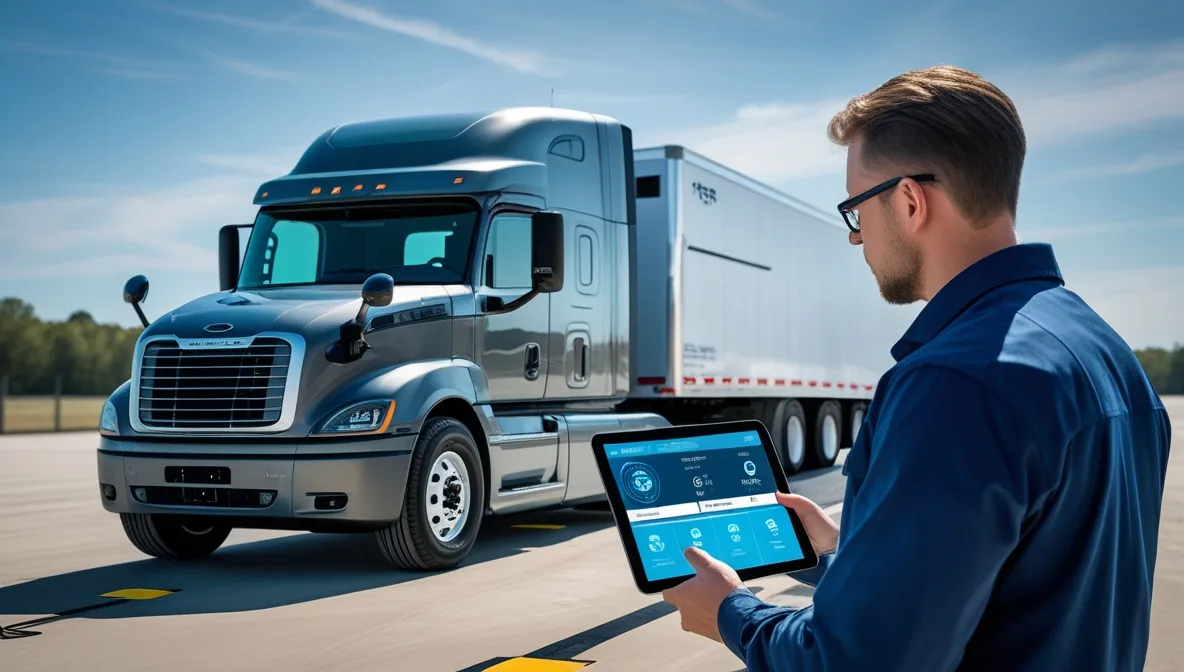Russia Develops an Autonomous Truck Convoy
Russian companies Navio and Grunwald have unveiled a prototype of an intelligent refrigerated semi-trailer equipped with cloud connectivity and artificial intelligence. The system continuously monitors cargo condition, temperature control, and technical parameters — all without a driver.

A Semi-Trailer That Thinks for Itself
Navio and Grunwald have announced the creation of the first smart refrigerated semi-trailer connected to Navio Freight’s cloud-based autonomous logistics platform and AI driver. Unlike standard trailers, this innovation collects, analyzes, and transmits real-time data on all key systems — from interior temperature to tire pressure and rear-door status.
All parameters are uploaded to the Navio Freight cloud platform, where the AI driver analyzes the situation and executes automated actions: adjusting cooling systems, initiating stops in case of malfunctions, dispatching service crews, or scheduling maintenance. This constant feedback loop allows for full autonomy in monitoring both the technical state and cargo safety. The integration of the smart semi-trailer with an autonomous tractor unit marks the first step toward automating the entire logistics cycle within the Navio Freight ecosystem.

The first prototype was intentionally designed as a refrigerated trailer — one of the most demanding applications in logistics. Perishable goods require flawless environmental control, where even small errors can lead to significant losses. The experimental model will serve as a testing platform for various autonomous operation scenarios, including emergency stops, low-risk maneuvers, service calls, and predictive maintenance scheduling. Beyond its technical novelty, this initiative carries major implications for business efficiency, reliability, and national innovation.
For Russia, it represents progress in domestic transport engineering, reduced import dependency, and the strengthening of logistics infrastructure. Globally, it signals how vehicles and trailers are evolving into intelligent networked systems, preparing the way for driverless freight operations.
Toward an Industrial Revolution in Freight Transport
The scalability of smart trailer technology opens vast potential for upgrading Russia’s vehicle fleet and enhancing operational control. Adoption of such systems can help logistics companies maintain strict temperature compliance, reduce breakdown risks, and cut operational costs. Navio’s technology is already beyond the prototype stage — since 2023, the company has been running daily commercial routes for major retailers, FMCG producers, and transport operators.
The system architecture integrates IoT sensors for predictive maintenance and monitoring, ensuring continuous communication with service platforms. Applications within Russia range from distribution logistics and the cold chain to agribusiness and pharmaceuticals. Transitioning from prototype to serial production will lay the groundwork for potential technology exports.

Telematics and Cold Chain Evolution
The Russian project aligns with global trends in telematics-based monitoring for refrigerated freight. Early systems such as IQFREEZE, developed in the early 2020s, relied on onboard sensors linked to satellite terminals to monitor internal and ambient temperatures. These systems enabled drivers and dispatchers to view data in real time via mobile applications.
Modern telematics now allows for autonomous monitoring via Bluetooth synchronization and automatic alerts. According to industry estimates, up to 15% of food products are lost during transit due to transport condition violations — making continuous monitoring a critical safeguard. Meanwhile, autonomous freight technologies have been advancing in parallel.

In June 2023, Russia conducted its first test run of four self-driving KamAZ-54901 trucks carrying 20-ton refrigerated trailers on the M-11 highway. Companies like EvoCargo are pioneering fifth-generation autonomous driving systems that can reduce logistics costs by up to 30%, minimize human involvement, and improve process predictability.
Toward a Driverless Logistics Future
The Navio-Grunwald development marks a new phase in Russia’s transport evolution. Short-term goals through 2027 include pilot testing of autonomous convoy operations and validation of automated cargo condition management.
By 2030, the companies plan to enter serial production, integrating the technology into large logistics fleets and expanding to international markets. The smart convoy ecosystem will combine connected trailers, autonomous tractors, cloud-based analytics, and predictive maintenance — driving cost efficiency, speed, and reliability. In the long term, the vision is a fully autonomous logistics chain, where AI manages routing, monitoring, and service across driverless fleets.
For the Russian economy, the project signals a technological breakthrough in cold logistics and strengthens domestic leadership in autonomous transport.










































